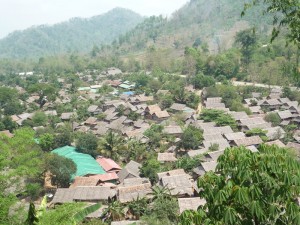The Karen Refugees Committee has issued a statement outlining its position on the repatriation of Karen refugees on the Thai-Burma border.
 The KRC said that the recent political reforms in Burma that took place in 2010 “signals a ray of hope for many refugees to be able to return to their homeland.”
The KRC said that the recent political reforms in Burma that took place in 2010 “signals a ray of hope for many refugees to be able to return to their homeland.”
Figures released by The Border Consortium (TBC), an humanitarian organization that supplies food and shelter to refugees in the camps, estimate that there are 130,000 refugees – 82,000 who are officially registered.
The KRC’s statement said that 10 key points had to be met in order for a repatriation process to be put in place that did not undermine the lives of refugees.
KRC 10 key points are:
(1) Nationwide ceasefire should be observed,
(2) There should be sustainable peace and political conflicts should be settled,
(3) Provision of universal human rights must be respected,
(4) Relocated areas should be freed from land mines and security should be given a priority,
(5) The relocated areas should be suitable for one to support their livelihood; favourable land should be provided adequately for one family,
(6) Health certificates, education certificates received should be recognised by the government,
(7) We will not tolerate force repatriation; it should be one’s own decision or voluntary return,
(8) Adequate preparation should be given to return,
(9) Right should be given to the Committee concerned regarding repatriation and allow them to inspect location and collect necessary information,
(10) The repatriation can only take place when the concerned organisations, KRC, INGOs, NGOs, UNHCR, and CBOs agree that there is a genuine peace in Burma.



